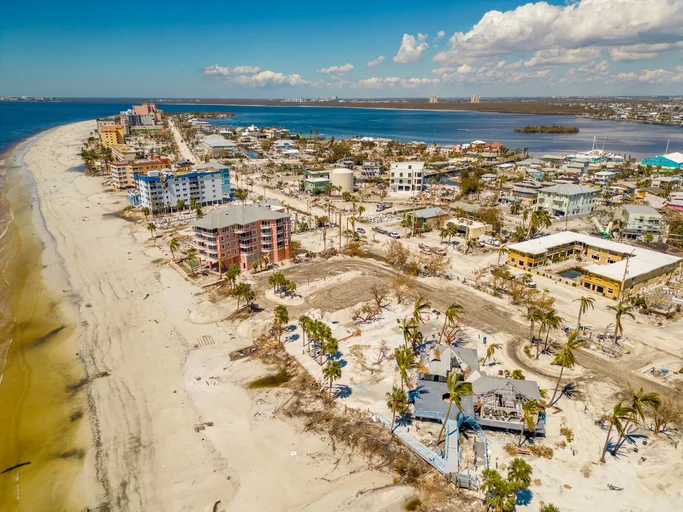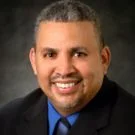Benjamin Franklin once said, “… in this world nothing can be said to be certain except death and taxes.” I wouldn’t ordinarily disagree with Mr. Franklin, but I think it’s safe to add “crisis or disaster” to the list. We have all faced or will face, at least one moment of “crisis” during our lives. At that moment, what we do and say will reveal the person we are and the beliefs that we hold. Luke 6:45 (CEB) tells us:
“Good people do good things because of the good in their hearts, but bad people do bad things because of the evil in their hearts. Your words show what is in your heart.”
On September 22, 2022, Hurricane Ian struck the coast of Florida causing an estimated $47 billion in insured loss. The destruction and devastation it caused was described as being of “biblical proportions.” Ian’s impact went well beyond the destruction of buildings, infrastructure, and homes; it impacted people’s spirits. Ian’s impact on our human spirit was perhaps best captured during a television interview with “survivors.”
During a visit to a hurricane shelter, a television report asked: “What word best describes what you are feeling?” One couple answered, “devastated.” When asked what they meant, the couple answered, “We have lost everything. We do not know what to do or how we are going to recover and get through this.”
A few minutes later the reporter asked a young woman the same question. The woman smiled and responded “thankful.” The report asked, what are you thankful about? The woman turned and pointed to her children. I am thankful I am here with my seven children. We have food and a safe place to sleep, there is a roof over our heads, and we are all together. We will get through this “together.”
These individuals experienced the same catastrophic event, both responding from their perspectives, but the responses couldn’t have been more different. Can our perspective really matter or make a difference? Proverbs 17:22 (CSB) tells us that:
“A joyful heart is good medicine,
But a broken spirit dries up the bones.”
Help is on the way! In times of crisis, goodness, and compassion flow freely as people rally to support and aid others. People are seen taking others, often strangers, into their homes. We see contributions and assistance pour in. We see kindness and, if even for a brief moment, we are less critical of one another. We feel the need to help and even if we can’t bring people into our homes, or donate time or money; we can pray for the healing and recovery of others. As Tiffany Curtis, Faith Editor Cosswalk.com, reminds us:
“The most important thing that we can do as believers is to pray. And while that may not sound like “doing” a lot, there is immense power in presenting our requests to God and interceding on behalf of our brothers and sisters.”
Prayers of intercession are considered one of the most powerful forms of prayer. Intercession comes from the Latin word intercedo, meaning “to come between.” It is a prayer not for us but focused directly on the needs of others. Intercessory prayer also requires our preparation and willingness to be used in the service of others. Corrie Ten Boom, the author of The Hiding Place and a Holocaust survivor, tells us:
“We never know how God will answer our prayers, but we can expect that He will get us involved in His plan for the answer. If we are true intercessors, we must be ready to take part in God’s work on behalf of the people for whom we pray.”
Disaster recovery is time-consuming and expensive, and while people struggle, it isn’t just about replacing and rebuilding structures. It is equally, if not more, important those affected demonstrate the right mind and heart. A crisis or disaster doesn’t just test our character and faith; it gives us an opportunity for a “do-over” or “second chance”
In tennis, the chair umpire calls “Let” and a point is played over because of interference. The good news
is that, despite our current circumstances or hardships, God can call “Let” and give us “a second chance.”
“God wants all people to be saved. He provides multiple chances for all people to accept Him. God gave us the second chance to be restored to Him by sending Jesus. We make God smile when we offer forgiveness and give others second chances” (https://www.gqkidz.org/Bible-second-chances.html).
Challenge: As leaders, and followers of Jesus, remaining on the sidelines in times of crisis, is not an option. We are reminded (1 Timothy 5:8, ESV):
“But if anyone does not provide for his relatives, and especially for members of his household, he has denied the faith and is worse than an unbeliever.”
Second chances aren’t reserved for disasters and crisis. The truth is that it isn’t possible to lead like Jesus if we can’t create or provide others the opportunity for a second chance when we are hurt, disappointed or feel betrayed. God gave us a Jesus so that we could have a second chance. Don’t we owe others the same opportunity?










